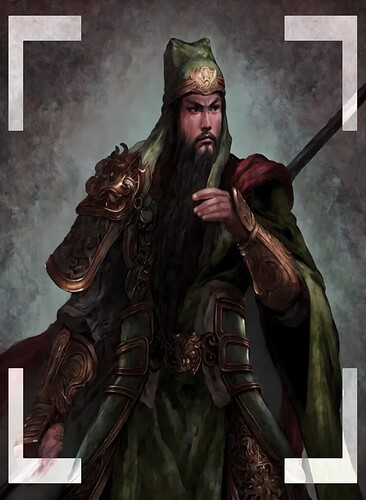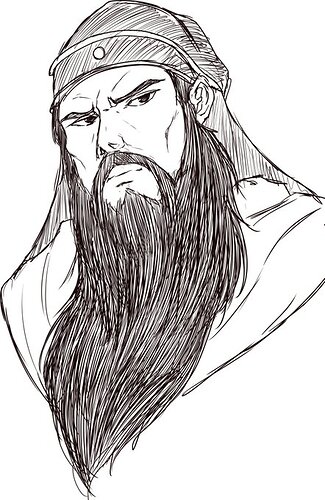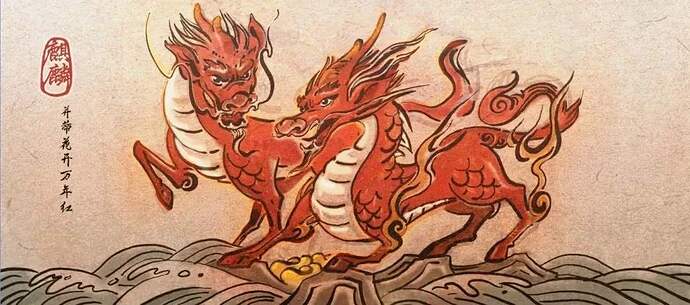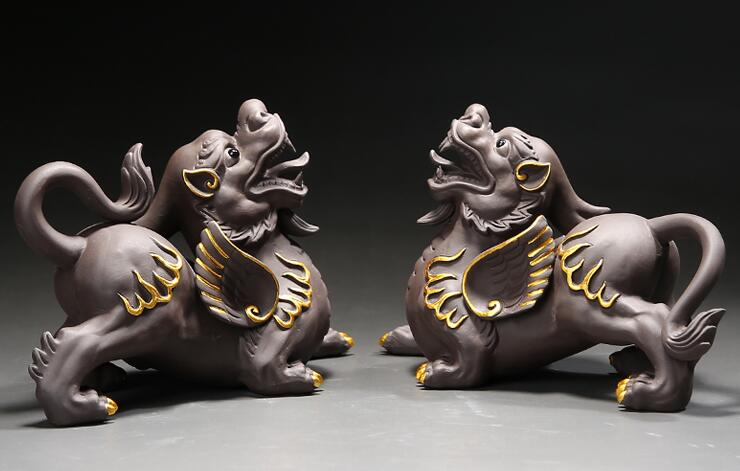The Heavenly Emperor
Image + Audio
1: The Emperor
(A): The complete blessings and cultivation inheritance of the Jade Emperor (Yu Huang)
Information on the Jade Emperor
The Jade Emperor or Yudi (Chinese: 玉皇; pinyin: Yù Huáng) Chinese culture, traditional religions and myth is one of the representations of the first god (太帝 tài dì). In Daoist theology he is the assistant of Yuanshi Tianzun, who is one of the Three Pure Ones, the three primordial emanations of the Tao. He is often identified with Śakra in Chinese Buddhist cosmology.
The Jade Emperor is known by many names, including Heavenly Grandfather (天公, Tiāngōng), which originally meant “Heavenly Duke”, which is used by commoners; the Jade Lord; the Highest Emperor; Great Emperor of Jade (玉皇上帝, Yu Huang Shangdi or 玉皇大帝, Yu Huang Dadi).
It was said that Jade Emperor was originally the crown prince of the kingdom of Pure Felicity and Majestic Heavenly Lights and Ornaments. At birth, he emitted a wondrous light that filled the entire kingdom. When he was young, he was kind, intelligent and wise. He devoted his entire childhood to helping the needy (the poor and suffering, the deserted and single, the hungry and disabled). Furthermore, he showed respect and benevolence to both men and creatures. After his father died, he ascended the throne. He made sure that everyone in his kingdom found peace and contentment. After that, he told his ministers that he wished to cultivate Tao on the Bright and Fragrant Cliff.
After 1,750 eons, each eon lasting for 129,600 years (3602 years), he attained Golden Immortality. After another one hundred million years of cultivation, he finally became the Jade Emperor. (Using the given figures, this period before his becoming the Jade Emperor lasted for a total of about 227 million years.)
One of the myths describes how the Jade Emperor became the monarch of all the deities in heaven. It is one of the few myths in which the Jade Emperor really shows his power.
In the beginning of time, the earth was a very difficult place to live, much harsher than it is now. People had to deal with a variety of monstrous beings, and they did not have many gods to protect them; in addition, many powerful demons were defying the immortals of heaven. The Jade Emperor was an ordinary immortal who roamed the earth helping as many people as he could. He was saddened because his powers could only ease the suffering of humans. He retreated to a mountain cave to cultivate his Tao. He passed 3,200 trials, each trial lasting about 3 million years.
On earth at this time, a powerful, evil entity had the ambition to conquer the immortals and gods in heaven and proclaim sovereignty over the entire universe. This evil entity also went into retreat and meditation to expand its power, though later than the Jade Emperor did. He passed through 3,000 trials, each trial lasting about 3 million years. After its final trial, it felt confident that no one could defeat it. It re-entered the world and recruited an army of demons with the purpose of attacking heaven.
The immortals, being aware of the threat, gathered themselves and prepared for war. The gods were unable to stop the powerful demon and it defeated them all.
The Jade Emperor finished his cultivation during this war. When he was changing the land to make it more liveable for men and repelling a variety of monsters, he saw an evil glow radiating from heaven and knew something was amiss. He ascended and saw that the evil entity was too powerful to be stopped by the gods. He challenged it, and they fought. Mountains shook and rivers and seas toppled. Due to his deeper and wiser cultivation, his benevolence instead of his might, the Jade Emperor won the battle. After the evil entity was defeated, its army was scattered by the gods and immortals.
Because of his noble and benevolent deeds, the gods, immortals, and humans proclaimed the Jade Emperor the supreme sovereign of all.
(B): An alchemical revision of the user’s Bazi based on an improved version of Qin Shi Huang’s (which also fixes negative aspects such as the lack of longevity he sought after)
Information on Shi Huang Di
Qin Shi Huang (Chinese: 秦始皇, pronunciationⓘ; February 259 – 12 July 210 BC) was the founder of the Qin dynasty and the first emperor of a unified China. Rather than maintain the title of “king” (王, wáng) borne by the previous Shang and Zhou rulers, he ruled China from 221 to 210 BC as the first “emperor” (皇帝, huáng dì) of the Qin dynasty. His self-invented title “emperor” would continue to be borne by Chinese monarchs for the next two millennia.
Born in the Zhao state capital Handan, as Ying Zheng (嬴政) or Zhao Zheng (趙政), his parents were King Zhuangxiang of Qin and Lady Zhao. The wealthy merchant Lü Buwei assisted him in succeeding his father as the ruler of Qin, after which he became Zheng, King of Qin. By the age of 38 in 221 BC, he had conquered all the other Warring States and unified all of China, and he ascended the throne as China’s first emperor. During his reign, his generals greatly expanded the size of the Chinese state: campaigns south of Chu permanently added the Yue lands of Hunan and Guangdong to the Chinese cultural orbit, and campaigns in Inner Asia conquered the Ordos Loop from the nomadic Xiongnu, although the Xiongnu later rallied under Modu Chanyu.
Qin Shi Huang also worked with his minister Li Si to enact major economic and political reforms aimed at the standardization of the diverse practices of the earlier Chinese states. He is traditionally said to have banned and burned many books and executed scholars. His public works projects included the incorporation of diverse state walls into a single Great Wall of China and a massive new national road system, as well as his city-sized mausoleum guarded by a life-sized Terracotta Army. He ruled until his death in 210 BC, during his fifth tour of Eastern China.
As an individual man, he embodied imperial rulership and authority. As he grew old, Qin Shi Huang desperately sought the fabled elixir of life which supposedly confers immortality. In his obsessive quest, he fell prey to many fraudulent elixirs and one of the hypothesis for his eventual death is that he was poisoned by an elixir containing mercury, given him by his court alchemists and physicians in his quest for immortality.
(C): Imbuing the user with the essence of the legendary Qilin
Information on the Qilin
The qilin (English: chee-LIN; Chinese: 麒麟) is a legendary hooved chimerical creature that appears in Chinese mythology, and is said to appear with the imminent arrival or passing of a sage or illustrious ruler.
Qilin generally have Chinese dragon-like features: similar heads with antlers, eyes with thick eyelashes, manes that always flow upward, and beards. The body is fully or partially scaled and often shaped like an ox, deer, or horse. They are always shown with cloven hooves. While dragons in China (and thus qilin) are also most commonly depicted as golden, qilin may be of any color or even various colors, and can be depicted as bejeweled or exhibiting a jewel-like brilliance.
The qilin is depicted throughout a wide range of Chinese art, sometimes with parts of their bodies on fire.
Legends tell that qilin have appeared in the garden of the legendary Yellow Emperor and in the capital of Emperor Yao; both events bore testimony to the benevolent nature of the rulers. It has also been told that the birth of the great sage Confucius was foretold by the arrival of a qilin.
2: Beyond life
(A): The ripe, specific sub-type of the peach of immortality which blooms every nine thousand years and grants the user the longevity of the sun and the moon, the eternity of heaven and earth.
Information on Peaches
In Chinese mythology, Peaches of Immortality (Chinese: 仙桃; pinyin: xiāntáo) are consumed by the immortals due to their mystic virtue of conferring longevity on all who eat them. The Jade Emperor and his wife Xi Wangmu (Queen Mother of the West) ensured the deities’ everlasting existence by feasting them with the peaches of immortality. The immortals residing in the palace of Xi Wangmu were said to celebrate an extravagant banquet called the “Feast of Peaches” (Chinese: 蟠桃會; pinyin: Pántáo Huì) celebrated on earth in honor (birthday) of Xi Wangmu on the 3rd day of the 3rd moon month. The immortals wait six thousand years before gathering for this magnificent feast; the peach tree put forth leaves once every thousand years and it required another three thousand years for the fruit to ripen. Statues depicting Xi Wangmu’s attendants often held three peaches. And the Eight Immortals crossing the seas to attend the banquet is a popular subject in paintings.
Both the Former Affairs of the Emperor Wu and Records of Diverse Matters record stories where the Queen Mother of the West visited Emperor Wu of Han and offered peaches to him. In the latter account, when the Emperor says he plans to plant the peach stones, the Queen Mother of the West tells him that the trees will bear fruit once every 3,000 years. The Peaches of Immortality are a major item featured within the popular fantasy novel Journey to the West. The peaches are first encountered when, in heaven, Sun Wukong is stationed as the Protector of the Peaches. The peach garden include three types of peaches, all of which grant over 3,000 years of life if only one is consumed. The first type blooms every three thousand years; anyone who eats it will become immortal, and their body will become both light and strong. The second type blooms every six thousand years; anyone who eats it will be able to fly and enjoy eternal youth. The third type blooms every nine thousand years; anyone who eats it will become “eternal as heaven and earth, as long-lived as the sun and moon.”
(B): An alchemical revision/reconstruction of the user’s physical body into the idealized version/blueprint (concept) of what a Zhen Ren (真人)(Perfected Person) is like.
Zhen Ren
The Daoist sage Zhuangzi used the term zhenren, along with shenren (“spiritualized person”), zhiren (“perfected person”), and shengren (“sage,” or “sagely person”), to refer to the Daoist ideal of the person who had achieved immortality and was immune to earthly desires and dangers.
The most descriptive zhenren passage repeats it 9 times.
There must first be a True Man before there can be true knowledge. What do I mean by a True Man? The True Man of ancient times did not rebel against want, did not grow proud in plenty, and did not plan his affairs. A man like this could commit an error and not regret it, could meet with success and not make a show. A man like this could climb the high places and not be frightened, could enter the water and not get wet, could enter the fire and not get burned. His knowledge was able to climb all the way up to the Way like this.
The True Man of ancient times slept without dreaming and woke without care; he ate without savoring and his breath came from deep inside. The True Man breathes with his heels; the mass of men breathe with their throats. Crushed and bound down, they gasp out their words as though they were retching. Deep in their passions and desires, they are shallow in the workings of Heaven.
The True Man of ancient times knew nothing of loving life, knew nothing of hating death. He emerged without delight; he went back in without a fuss. He came briskly, he went briskly, and that was all. He didn’t forget where he began; he didn’t try to find out where he would end. He received something and took pleasure in it; he forgot about it and handed it back again. This is what I call not using the mind to repel the Way, not using man to help out Heaven. This is what I call the True Man. …
This was the True Man of old: his bearing was lofty and did not crumble; he appeared to lack but accepted nothing; he was dignified in his correctness but not insistent; he was vast in his emptiness but not ostentatious. Mild and cheerful, he seemed to be happy; reluctant, he could not help doing certain things; annoyed, he let it show in his face; relaxed, he rested in his virtue. Tolerant, he seemed to be part of the world; towering alone, he could be checked by nothing; withdrawn, he seemed to prefer to cut himself off; bemused, he forgot what he was going to say. …
Therefore his liking was one and his not liking was one. His being one was one and his not being one was one. In being one, he was acting as a companion of Heaven. In not being one, he was acting as a companion of man. When man and Heaven do not defeat each other, then we may be said to have the True Man. (6, 大宗師)
(C): Invites the user to use the Silver Bridge in the Chinese Pantheon after death to join the ranks of heavenly officials/immortals under the Jade Emperor.
The Silver Bridge
According to traditional Chinese beliefs, when a person dies the local Earth God takes charge of the soul about to take the journey to the Underworld and presents the soul before the local City God. The City God’s job is to look over the record of the deeds accompanying the soul and then sends the soul to the Underworld to be processed by the ten Magistrates of Hell. The ten magistrates is a place where souls are held accountable for the actions that they completed during life and harsh punishments occur if necessary.
Another Chinese belief is that King Yan Luo (Yama) is the ruler of the nether world and masters a birth-and-death notebook that keeps record of both the birth and death dates assigned to everyone. The span of everyone’s lives are regulated and once a person’s death-line comes then the king would erase their line, thus ending their life.
The Underworld domain of the Chinese cosmos is considered a transitory space and time for just one of the multiple souls of the dead and is not the same as the Christian sense of “hell” in which souls face perpetual punishment for a permanent, unchanging self.
The golden bridge or the silver bridge: Choosing between paradise and heaven
Though many souls are believed to face judgment before all ten Magistrates of Hell, rare souls who led an exemplary life can achieve immediate release from the Underworld and choose between the two bridges. The Golden Bridge and the Silver Bridge each lead to a different destiny. If the Golden Bridge is chosen the soul is taken to the Pure Land of the West. This is not considered a part of the Chinese cosmos. The Pure Land of the West is presided over by the Buddha Amitābha. Once the soul encounters Buddha Amitābha face-to-face, the soul can achieve nirvana and be released from the cycle of birth and rebirth. It has been interpreted that a soul that chooses the Western Pure Land achieves salvation from the cosmos itself.
Unlike the Golden Bridge, the Silver Bridge leads to Heaven, an important domain of the cosmos. Heaven is ruled by the Jade Emperor and consists of heavenly officials and many gods. Souls entering Heaven by the Silver Bridge may be reborn as a god and become a prominent figure in the cosmos.
3: Blessed by the Heavens
(A): Tai Sui pacification ritual (nullifies all negative astrological effects and amplifies the positive)
[details="Tai Sui’]
Tai Sui is a Chinese term for the stars directly opposite the planet Jupiter (木星 Mùxīng) during its roughly 12-year orbital cycle. Personified as deities, they are important features of Chinese astrology, Feng Shui, Taoism, and Chinese Buddhism to a lesser extent.
The 12 signs of the Chinese zodiac are based on divisions of the Jovian orbital cycle, rather than—as with the western zodiac—the apparent motion of the sun relative to the celestial sphere. The star thought to oppose Jupiter during each year of the cycle was personified as a Heavenly General (zh:甲子神列表) or Cycle God. These were believed to assist the Jade Emperor in controlling the mortal world.
In the Warring States period, Tai Sui had become gods in the popular astronomy, but there is no record of worshiping the Tai Sui in the documents before the Han dynasty, with the earliest record found in Wang Chong’s Lunheng. There are several legends related to it, usually about people disrespecting or ignoring Tai Sui and suffering disaster.
Their number was later quintupled to sixty, based on the combinations of the twelve divisions (reckoned using the earthly stems) with the five Chinese elements of fire, earth, metal, water, and wood. Each of the gods’ features and attributes signifies the well-being of that year. For example, if the Tai Sui of the year holds a pen, it signifies political unrest for that particular year. On the other hand, if the Tai Sui of the year holds a Spear or Sword, it signifies the need to work hard and excel for that year.
Yin Jiao is the leader of those sixty Taisui Xingjun gods. Yin Jiao doesn’t govern any year in the 60-year cycle, and every year is governed by one of the 60 subordinate Taisui. Yin Jiao in particular is referred to in this context as Taisui Tongling Yin Yuanshuai (Commander of Tai Sui General Yin). In Japan and Japanese folklore however, “Taisui Xingjun” is considered a singular god.
In Taoism, those whose birth sign or other features clash with the Tai Sui of the year will face misfortunes or disturbances for the whole current year. Each year, this applies to people born under four out of the twelve animal zodiac signs. In 2017, for example, it applied to people born in the years of the Rat, Rabbit, Horse and Rooster. In Taiwan, people will go to the temples at the beginning of the Lunar Year, seeking protection and peace while driving away the negative impacts. The ritual or ceremony is known as “An Tai Sui” or pacifying the Tai Sui of the Year. In return, worshipers will receive a protective talisman from the temple which will give the person for one year’s spiritual protection.
[/details]
(B): 贵人 (GUI REN) talisman to attract supportive/beneficial people from all directions into the various aspects of your life
Gui Ren
贵人 (GUI REN) - ‘Valuable Person/Noble Man’ - People who are of great help in your life - Supporters, people who give You helping hands to achieve Your goals , people who come and rescue You when You are down and out etc.
小人 (XIAO REN) - ‘Little Man’ - People who give You trouble - Mean people (Villains), people who stop You from achieving Your goals, backstabbers, People who are jealous of Your success and try to pull You down etc.
To attract ‘Gui Ren’ (贵人), typically, the Chinese Folks would burn ‘Gui Ren’ Joss Papers (贵人纸) on certain Chinese festivals or occasions. To Prevent ‘Xiao-Ren’ (小人), would Pray to Tiger God with ‘Hit The Little Man (Villain)’ (打小人) Prayer on certain Chinese festivals or occasions.
(C): Blessings and protection of the Pixiu
Pixiu
Pixiu (貔貅; píxiū ; P’i-hsiu ; Old Chinese *bi-qʰu ) is a Chinese mythical creature. Pixiu are considered powerful protectors of feng shui practitioners. They look like strong, winged lions. A Pixiu is a special creature for wealth. It is said to have a want for gold, silver, and jewels. So, Pixiu are always regarded as special creatures that have sacred powers of drawing cai qi (財氣 wealth) from all directions.
Once Pixiu broke the rules of Heaven by discharging faeces on the floor of Heaven. When it was found out, it was punished by the Jade Emperor. The punishment of spanking was hard enough to cause its anus to be permanently sealed. The Jade Emperor further announced that the food of the Pixiu would be restricted to gold, silver, and jewels.
Another story describes the Pixiu as the well-behaved youngest son of the Dragon King. He was spoiled by his parents. One day, Pixiu played on the Dragon King’s desk and broke a seal by mistake. The seal showed the power of the Dragon King. The Dragon King became very angry. He used magic to turn Pixiu into an animal. He then sealed his rectum. He announced that from then on, Pixiu could only eat things representing wealth.
Pixiu have a fame of being wild animals. The large fangs can be seen in their mouths. These are used to attack demons and evil spirits. It could convert them to wealth. Pixiu also guard against disease caused by these evil spirits. Pixiu patrols the Heavens to keep demons away and to protect their owners from all harms.
Pixiu would always and constantly guard its master, even after he passed from this life onto the next world. Pixiu would help their masters to go to Heaven by flying them up to Heaven on their backs.



